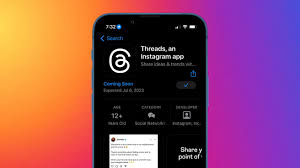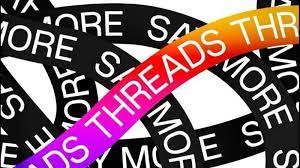Almost two weeks since the new conversation-based app Threads launched, Meta’s newest social media entry is already making waves for Gen Z and Millennials across the globe. It’s the fastest-growing app ever in terms of downloads, and many are already calling it Twitter’s death knell. Timing, purpose, and the social media empire behind Instagram’s response to Twitter are key factors driving Threads’ early success, and who’s backing it?
In today’s blog, we’ll explore the factors behind the early success of the Threads app and shed light on the issues that have put Twitter in a precarious position.

Threads dropped at the right time
Elon Musk’s October takeover of Twitter was characterized by immense uncertainty both within Twitter HQ and on the platform itself. More than eight months later, only 17 of the 60 major advertisers that paused advertising on the platform have reportedly come back.
Enter Instagram’s new Twitter look-alike Threads. The app’s launch comes at a time when confidence in Twitter has been in decline, even among its own users. Net favorability toward Twitter, or the share who are favourable minus those who are unfavourable, dropped substantially among Twitter users after Musk took over as CEO last year, according to Facebook services. This waning impression of Twitter among its user base marks a good time for an alternative to surface.
More positivity, less politics, and more moderation resonate with users
Threads isn’t just positioning itself as a Twitter replacement, but more so a positive, less political, and better-moderated alternative for Gen Z and Millennials. Twitter, on the other hand, has typically considered itself to be the internet’s “digital town square.” This has advantageously positioned Twitter as a place where news breaks quickly and politicians can find an audience of millions on the cheap, which contributed to driving engagement among users.
But Twitter’s approach to fostering controversy is not for all: Threads’ value proposition of being less controversial is resonating among Twitter’s users. They are more likely than not to say that Threads’ aim is to be more positive, less political, and have the same moderation guidelines as Instagram gives them a more positive impression of the platform.
Positivity, Less Politics, and More Moderation Work in Threads’ Favor
Since the platform’s launch on July 5, 23% of users of both Threads and Twitter say they already primarily use Threads, and 38% say they use both about equally, according to a recent Morning Consult survey. These bi-platform users also tend to say content on Threads is as fun and interesting as that on Twitter, albeit more exciting (though it’s entirely likely this feeling of excitement will dull with time).
Content on Threads Is Considered More Exciting Than Twitter Content
While still early, these trends bode well for Threads, as its differentiator seems to be meeting demand among many Twitter users right now. It remains to be seen, however, if the same hyper-curated and moderated approach that governs Instagram will be successful for a text-based platform in the long term, or if Twitter users’ appetite for more positivity is a short-lived hangover from Twitter’s anarchic environment.
Where do Threads go from here?
Threads have the potential to make decentralization one of its differentiators. Meta revealed that, while it was not an initial feature, Threads is working on supporting ActivityPub, a decentralized social networking protocol that would potentially allow users to interact with Threads content on different apps that support it. Decentralized services have had a rough road to mainstream adoption, and consumers are split on interest in social media decentralization — 37% are interested and 38% are not — but a company as big as Meta could make it more mainstream.

Advertisers fled Twitter in droves, and there is a desire to put that now-idle money to work on a platform where brands don’t need to worry about their content being shown alongside hate speech. Threads don’t need to be perfect to be successful. If it can be the safer and more interesting alternative to Twitter to users and maybe more importantly, advertisers, it has the potential to win out as the default conversation-based social media app.
In conclusion, the early success of the Threads app among Gen Z and Millennials highlights the importance of understanding the evolving needs and preferences of these demographics. Threads’ focus on privacy, visual communication, and authenticity has resonated with users, providing an alternative to Twitter’s shortcomings. As Gen Z and Millennials continue to shape the social media landscape, platforms like Truth Social, and Threads needs to adapt and innovate for their relevance and capturing the attention of influential generations.
